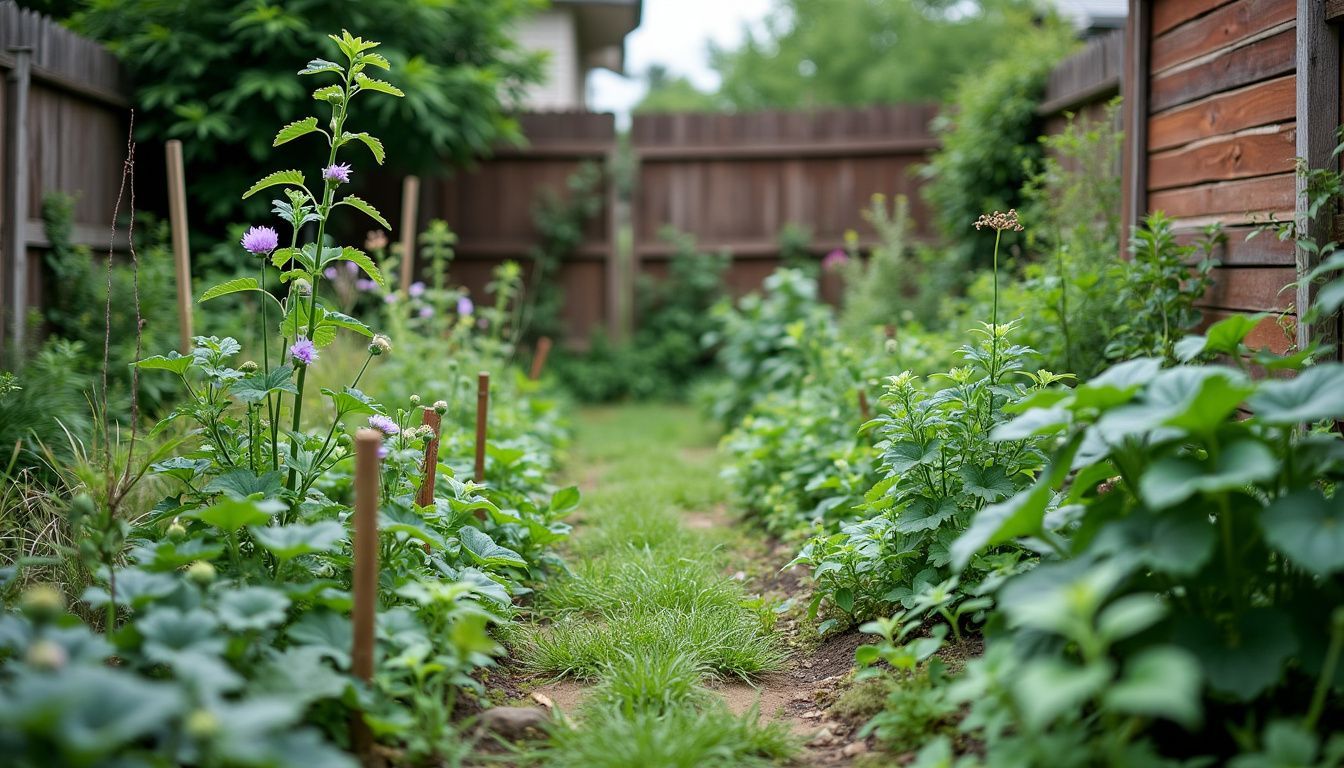Gardening can be a rewarding hobby, but it’s easy to make mistakes. Many gardeners face issues like planting too close, using chemicals wrong, and watering too much or too little. Avoiding these errors starts with planning your garden carefully.
You need to prepare the soil by testing its pH and adding nutrients. Choosing plants that fit your garden’s conditions is crucial. You also have to water properly and keep an eye on your plants for any signs of trouble.
Using organic options for chemicals helps protect your plants and the environment. To do well in gardening, you must adjust how you care for your garden when the weather changes. It also means spacing out plants so they’re not too crowded.
Talking to people who know a lot about gardening can help you avoid common mistakes. They can give advice that prevents problems before they start. Reading this article will teach you how to steer clear of typical gardening pitfalls.
The Most Common Gardening Mistakes
Many gardeners make simple errors that can hurt their plants. Understanding these mistakes helps you grow a thriving garden.
Improper spacing
Improper spacing can lead to crowded plants. This mistake often stunts growth and reduces yields. Plants need room to breathe and spread. If they are too close, they compete for nutrients, water, and sunlight.
This competition weakens each plant.
Proper garden spacing is crucial for success. Plan your garden layout carefully. Use the right spacing for each type of plant. For example, some vegetables need more space to grow.
Others can thrive close together. Always consider plant selection and garden design. Adjust your garden plan to avoid common gardening pitfalls.
Improper use of chemicals
Using chemicals incorrectly can harm your garden. Many beginners often misuse fertilizers and pesticides. They tend to apply too much, thinking more will yield better results. This mistake can damage plants and disturb the soil.
Chemical runoff can also affect nearby water sources.
Opt for organic alternatives when possible. These options reduce harm to beneficial insects and the environment. Follow instructions carefully when using any chemical products. Always measure accurately and apply at the recommended rates.
Understanding proper chemical usage is key in avoiding common gardening slipups. Healthy garden maintenance relies on responsible practices.
Improper watering
Improper watering can ruin your garden. Overwatering often leads to root rot. Plants need well-drained soil to thrive. On the other hand, underwatering can stress plants. They may wilt or struggle to grow.
Consistent moisture is key for healthy plants.
Keep an eye on weather changes. Adjust your watering schedule based on rainfall. Use mulch to retain soil moisture. Test soil before watering. This helps avoid common gardening blunders.
Learn proper plant watering techniques to protect your garden from mishaps.
How to Avoid These Mistakes
To avoid common gardening mistakes, gardeners should focus on planning ahead. They must also prepare the soil properly and select plants that suit their garden’s conditions.
Planning ahead
Planning ahead is crucial for successful gardening. Effective garden planning helps prevent common mistakes in gardening. Start by setting gardening goals. Decide which plants you want and where to place them.
Proper plant spacing is essential. Overcrowding your garden can lead to poor growth and disease.
Prepare your soil well before planting. Test the pH and add nutrients if needed. Choose plants that suit your climate and soil type. Make a detailed garden layout design. Regular maintenance and monitoring of your plants will keep your garden thriving.
Seek advice from experienced gardeners to avoid beginner gardening errors.
Proper soil preparation
Proper soil preparation plays a key role in gardening success. Begin by testing your soil’s pH and nutrient levels. This step helps you understand what your soil needs. Amend the soil with organic matter, compost, or fertilizers as necessary.
These materials improve soil structure and provide essential nutrients. Mixing them into the soil ensures that your plants receive what they need to thrive.
Avoid overcrowding plants by paying attention to proper garden spacing. Give each plant enough room to grow. This practice helps reduce competition for water and nutrients. Additionally, proper soil preparation boosts your garden’s overall health.
Healthy soil leads to strong plants. Strong plants resist pests and diseases more effectively.
Proper plant selection
Choosing the right plants is essential for a thriving garden. Start by understanding your local climate. Some plants thrive in hot weather, while others prefer cooler conditions. Consider how much sunlight each area of your garden receives throughout the day.
Select plants that match these conditions.
Avoid planting too much in small spaces. Overcrowding can lead to poor air circulation and competition for nutrients. Focus on interplanting techniques. This helps maximize space and minimizes weed control issues.
Healthy plant selection leads to a more successful garden. Next, learn about the importance of regular maintenance and monitoring.
Regular maintenance and monitoring
Regular maintenance and monitoring play crucial roles in successful gardening. Check plants often for signs of pests or diseases. Remove any weeds that compete for nutrients and water.
Water the garden properly based on the needs of each plant. Testing soil periodically helps ensure your plants grow strong. Keep a gardening journal to track changes and improvements.
This method allows you to spot issues before they become serious problems.
Proper plant selection also contributes to a thriving garden.
Seeking advice from experienced gardeners or professionals
Turning to experienced gardeners can help you avoid gardening mistakes. They offer practical tips for successful gardening based on their own experiences. Learning from others allows you to sidestep common gardening pitfalls.
Professionals can provide insights on proper plant selection and soil preparation. Their guidance can save you time and effort in your vegetable garden planning.
Joining local gardening groups opens doors to valuable advice. You can share your challenges and receive support from seasoned gardeners. This creates a community where everyone learns together.
Seeking advice from experts can greatly enhance your gardening success. It helps prevent gardening mishaps and ensures a thriving garden.

